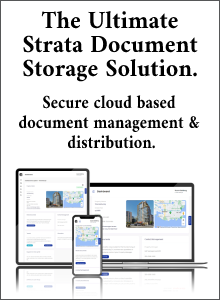In today’s digital age, online forums and social media platforms have become popular tools for communication and collaboration. However, when it comes to private strata corporations, using Facebook Groups as a forum may not always be the best choice. While Facebook Groups for private Strata Corporations offers convenience and familiarity, it also comes with several disadvantages that can compromise privacy, access, and the effective management of communications. In this blog post, we will explore five significant drawbacks of relying on Facebook Groups for a private strata corporation. Let’s dive in and uncover the cons that may be lurking beneath the surface.
Lack of Privacy
One major drawback of using Facebook Groups for private Strata Corporations is the potential lack of privacy. Facebook Groups are designed for social interactions and discussions among a wide range of users, making it difficult to ensure that the information shared within the group remains confidential. Since Facebook’s primary purpose is not for secure communication, there is a risk of unauthorized access or the exposure of sensitive strata corporation information.
Limited Access for Strata Owners
Facebook Groups for a private Strata Corporation requires users to have an active Facebook account in order to access and participate in Facebook Groups. This can be problematic for strata owners who may not have or wish to create a Facebook account. It could result in excluding certain members from participating in important discussions and decisions within the strata corporation.
Inadequate Archiving of Communications
Facebook Groups do not provide robust archiving features for communications. While posts and comments can be searched within the group, the organization and retrieval of important information can be challenging. Facebook’s platform is primarily focused on real-time interactions, and it lacks effective tools for categorizing and storing communications in a structured manner, which may be essential for a strata corporation that needs to keep track of important discussions and decisions over time.
Dependent on Third-Party Platform
By relying on Facebook Groups for a private Strata Corporation as a forum, the strata corporation becomes dependent on a third-party platform that it has limited control over. Facebook can change its features, policies, or even shut down the group without consultation or consent from the strata corporation. This lack of control can lead to potential disruptions or the loss of valuable data if the group is suddenly unavailable or inaccessible.
Potential for Information Overload and Distractions
Facebook is designed to be a highly interactive and social platform, which may lead to an influx of unrelated posts, notifications, and distractions within the group. This can make it difficult for strata owners to locate and focus on important information or discussions that pertain specifically to the strata corporation’s business. The cluttered nature of Facebook Groups can result in information overload and decreased efficiency when trying to find specific information or reach a consensus on important matters.
While Facebook Groups for a private Strata Corporation may seem like a convenient option for a private strata corporation’s forum, it is crucial to consider the potential drawbacks. From privacy concerns to limited access for strata owners and inadequate archiving of communications, the disadvantages of using a Facebook Groups for private Strata Corporations can significantly impact the effective management and transparency of your strata corporation. Be sure to make informed decisions about the most suitable forum for your private strata corporation.
Not Legal Advice - The material provided on the StrataPress website is for general information purposes only. It is not intended to provide legal advice or opinions of any kind and may not be used for professional or commercial purposes. No one should act, or refrain from acting, based solely upon the materials provided on this website, any hypertext links or other general information without first seeking appropriate legal or other professional advice. These materials may have no evidentiary value and should be checked against official sources before they are used for professional or commercial purposes. Your use of these materials is at your own risk.

